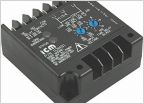-
Welcome to Tundras.com!
You are currently viewing as a guest! To get full-access, you need to register for a FREE account.
As a registered member, you’ll be able to:- Participate in all Tundra discussion topics
- Transfer over your build thread from a different forum to this one
- Communicate privately with other Tundra owners from around the world
- Post your own photos in our Members Gallery
- Access all special features of the site
Question Of The Day: Why Does My Car Battery Keep Dying?
Discussion in 'Off-Topic Discussion' started by T-Rex266, Sep 2, 2015.


 Reason 35913 to have a Dascham
Reason 35913 to have a Dascham Time to replace my gas grill, need some recommendations!
Time to replace my gas grill, need some recommendations! Amish Heaters AKA Infrared Heaters
Amish Heaters AKA Infrared Heaters Looftlighter
Looftlighter Roadside kits
Roadside kits Any HVAC pros here?
Any HVAC pros here?










































































